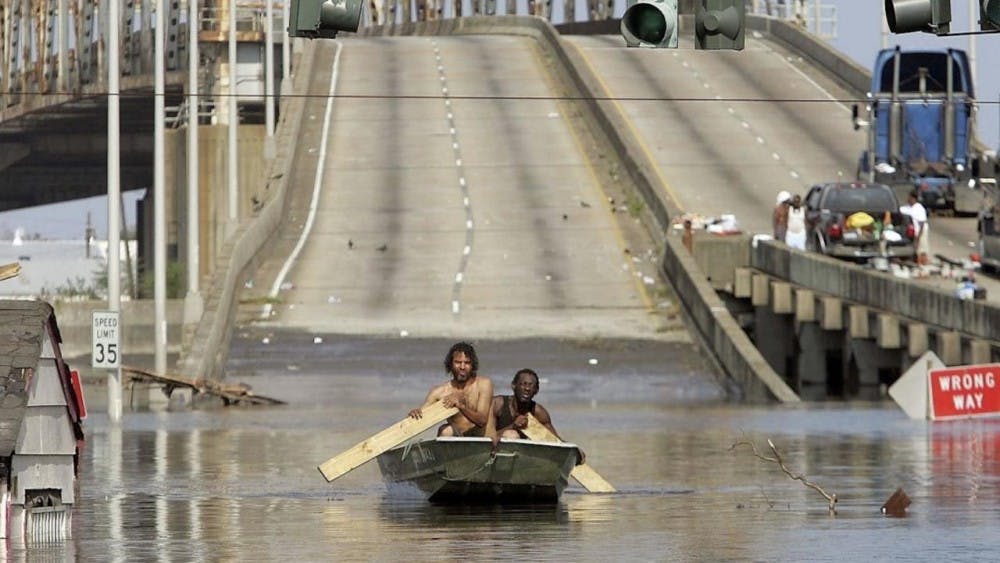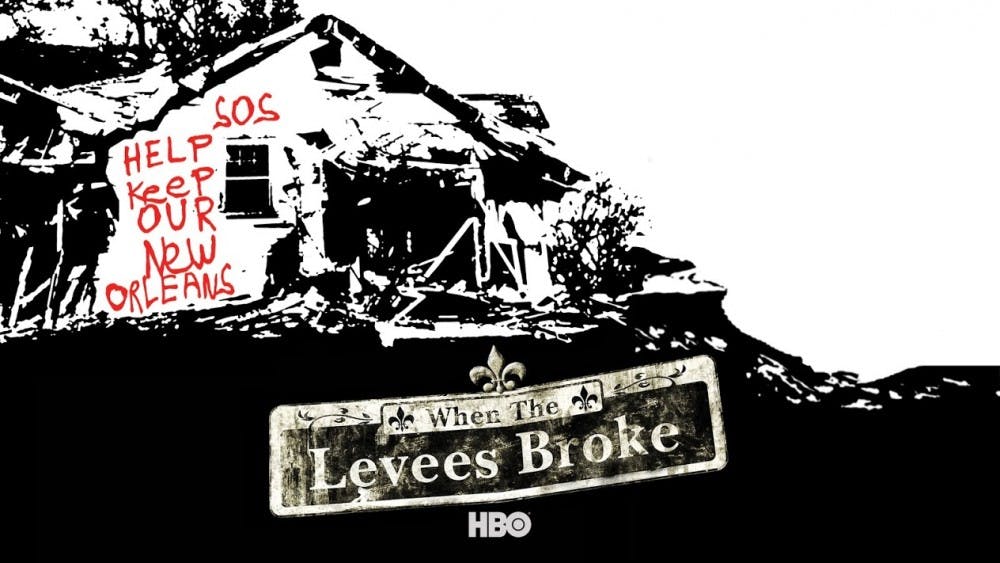In August of 2005, Hurricane Katrina ravaged the Gulf of Mexico. Thousands of homes were destroyed, cities were left underwater, and numerous people were stranded. By all accounts, Hurricane Katrina is one of the most deadly natural disasters in United States history. However, even more tragic than the storm was the government’s treatment of those affected and its disregard for human life.
When the Levees Broke: A Requiem in Four Acts first aired in two parts on HBO in August 21 and 22, 2006 to shed light on the tragedy that was Hurricane Katrina. Director Spike Lee is no stranger when it comes to highlighting government inaction and the treatment of the lower class and minorities. Many of Lee’s films, even his non-documentary films like Do The Right Thing and Chi-Raq, address similar themes. Lee is one of my favorite directors not only because of his great storytelling but also because of his bluntness; he never shies away from making pointed statements about the treatment of African-Americans. While this has caused some controversy, most of it seems to stem from non-black audiences that feel uncomfortable with the statements being made. To give you a better idea of just how ridiculous many of the criticisms directed towards Lee are, I would like to highlight a comment made by Lee in Rolling Stone’s article, Fight the Power: “Spike Lee on ‘Do The Right Thing’”. When asked by the interviewer what Lee’s favorite reaction to the film was, Lee responded with this:
“I’ll tell you my least favorite: the reviews of David Denby and Joe Klein saying that black people were going to riot after seeing this film. That they [black people] weren’t intelligent enough to make the distinction between what's happening on screen and what happens in real life — so they would come out of theaters and riot all across America.”
So how does this apply to When The Levees Broke? Well, just as the white reaction to Do The Right Thing was a feeling of threat and unease, the accusations of racism Lee makes towards the government makes some audiences uncomfortable.
While the documentary does show the build up to the storm and what happened during the storm, it mainly focuses on the aftermath. How did this happen and why? The levees in Louisiana 17th Street and London Avenue both collapsed, a failure not simply due to flood but poor engineering. Why poor engineering? Simply put, these are in low-income areas primarily populated by black people. You know which area they did decide to save? The French Quarter, the more well-off (and coincidentally white) section of New Orleans.

Image from Mubi
The most heartbreaking aspect of the film is the absolutely horrible treatment of the victims. Little was offered in the way of relief, and poor leadership let the city fall into chaos. A great example show is during a snippet from A Concert From Hurricane Relief, Kanye West actually takes time to detail how poorly hurricane relief had been handled. Outside of these celebrity criticisms, the documentary also shows personal testimonies of survivors, all just as heartbreaking as the last.
As the camera is trained on crowds of people waiting for rescue above the floodwater on overpasses, one British reporter’s voice says of the people on camera, “Most of them are black and poor, America’s underclass. The real victims of what has become a human storm.” The rest of the film goes on to showcase this point through extensive use of interviews and footage of the storm and the destruction it left in its wake. People detail the things they lost, the people they lost, and how they felt lost themselves.
Throughout the over four hour long film, the narrative of the tragedy is never lost, yet neither are the many personal tragedies that are highlighted. The film shows how incompetence at every level doomed a population that was seen as unnecessary to save. Lee’s film is remarkable for its depth and how, like the best of his work, this film is still relevant today.
It is a truly eye-opening experience that I couldn’t tear my eyes away from.
Be sure to check back next week as we cover one of history’s most controversial and influential documentaries, Leni Reifenstahl’s Nazi magnum opus, Triumph of the Will.
Sources: The Atlantic, Rolling Stone
Images: YouTube, IndieWire, Mubi
For more entertainment related content, visit us at Byte Bsu!



















